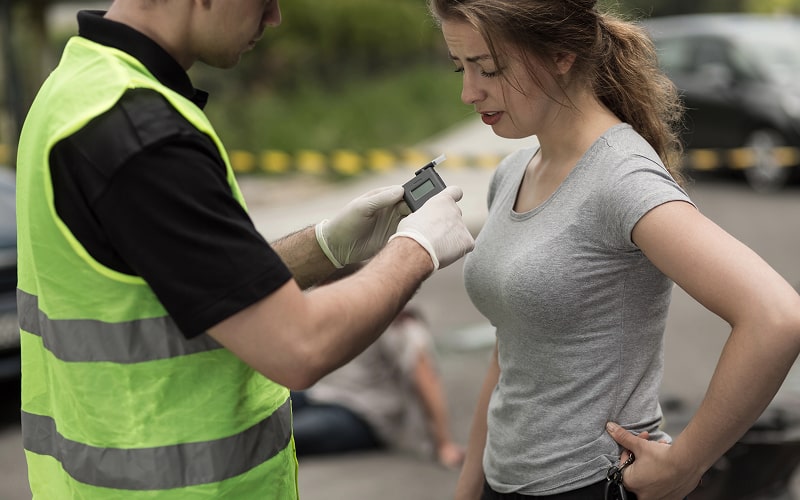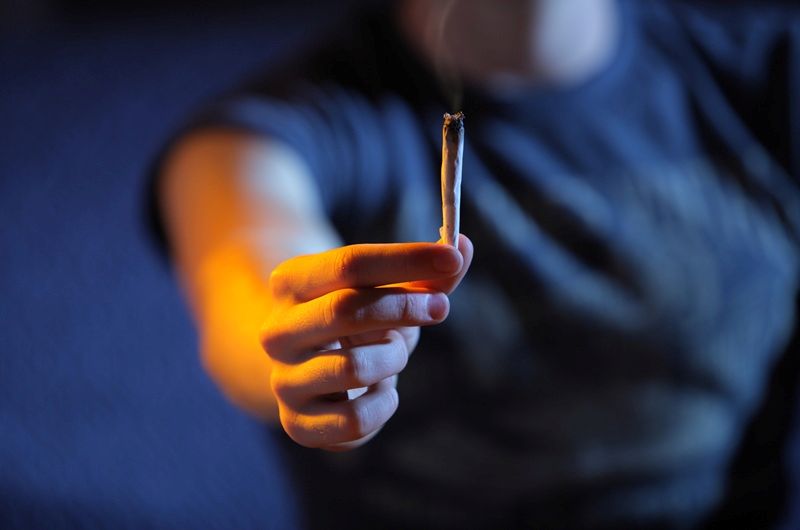Not all DUI evidence holds up under scrutiny. Law enforcement must follow strict procedures, and when they don’t, their mistakes can work in your favor. The more weaknesses exposed, the more doubt is cast on the prosecution’s ability to prove guilt. Knowing how to spot these flaws can help you build a strong defense.
This article explains common issues with DUI evidence and ways to challenge them. From faulty test results to police missteps, every detail matters. If officers fail to follow proper procedures, your case may not be as open-and-shut as the prosecution wants you to believe.

Limitations Of Breath & Blood Testing
Many assume breath and blood tests provide undeniable proof in a DUI case, but these methods are far from perfect. Machines require maintenance, officers must follow procedures, and even the body’s natural processes can interfere with accuracy. A flaw in any testing step can make the results questionable.
Disputing Breathalyzer Results
Breathalyzers are commonly used in DUI cases to measure blood alcohol content (BAC) and assess impairment. However, multiple factors can impact their accuracy.
- Machine Calibration: A breathalyzer must be adequately maintained to give correct readings. The machine may show an inflated BAC level if it isn’t regularly tested and calibrated. Even a minor miscalibration can turn a legal reading into an illegal one.
- Operator Error: An officer must follow strict guidelines when using a breathalyzer. Skipping vital steps or rushing through the process can produce false readings, and a lack of experience or training may render the test results unreliable.
- Medical Conditions: Certain conditions, like acid reflux or diabetes, can interfere with breath tests. Gastroesophageal reflux disease (GERD) can cause alcohol from the stomach to mix with breath. Meanwhile, diabetes can lead to ketone production, which some breathalyzers may mistake for alcohol. Even something as simple as mouthwash could throw off a reading.
Each of these factors can create doubt about a breathalyzer’s accuracy. If the prosecution’s case relies heavily on a breath test result, demonstrating specific errors can significantly weaken their argument.
Questioning Blood Test Accuracy
Sometimes, blood tests may provide more accurate results than breathalyzers, but they still have potential errors. Mistakes can occur at multiple stages, from when blood is drawn to the final lab report. You can challenge the results if authorities mishandle any part of the process.
- Improper Collection Procedures: Blood samples for DUI cases must be collected using a Department of Forensic Science (DFS) kit and handled according to strict guidelines. Only authorized medical personnel can withdraw samples, which must be sealed appropriately, documented, and submitted to prevent tampering.
- Chain of Custody Issues: Every person who handles a blood sample must follow proper procedures. If gaps in the chain of custody exist, such as missing or incorrect documentation, the sample could be compromised.
- Contamination Risks: Blood samples must be stored and transported correctly. Mishandling or exposure to contaminants can alter results, making them unreliable. Even using an alcohol swab before drawing blood may affect the reading.
A skilled defense can examine blood sample handling and challenge result inaccuracies, making it harder for the prosecution to rely on their evidence. Additionally, breath and blood tests are not the only evidence that may be unreliable field sobriety tests also have flaws.
Factors Affecting Field Sobriety Tests
Officers use field sobriety tests (FSTs) to assess a driver’s impairment. These tests rely on physical coordination, balance, and an officer’s interpretation factors that can lead to inaccurate results.
Sober drivers may fail due to anxiety, medical conditions, or poor testing conditions. When these factors impact performance, the test’s accuracy becomes questionable.
Officer’s Training & Experience
An officer’s ability to conduct and interpret FSTs is significant in accuracy. The results may be misleading if they lack proper training or misjudge a driver’s performance. Minor missteps, like mistaking fatigue for intoxication, can lead to wrongful arrests.
Environmental Conditions
Where an FST is conducted can significantly impact performance. Poor lighting, uneven pavement, or bad weather can make balance-related tests harder to complete. A driver struggling to walk a straight line in the dark or on a sloped surface may not be impaired at all.
Physical Or Medical Conditions
Health issues can also make passing FSTs difficult. Arthritis, past injuries, vertigo, or neurological conditions can interfere with coordination. Factors like age, weight, or footwear can make performing tasks like standing on one leg more difficult.
Individuals facing DUI charges can challenge FSTs due to their subjective nature. Stronger defenses can emerge when law enforcement fails to follow proper DUI procedures.
DUI Defense Involving Improper Procedures & Rights Violations
Police officers must adhere to strict legal protocols during DUI stops and arrests. Failure to do so may result in the exclusion of key evidence. You can challenge officer misconduct when police violate legal protocols or exceed their authority.
Lack Of Reasonable Suspicion For The Stop
An officer cannot pull you over without reasonable suspicion of illegal activity. This could include swerving, running a red light, or another clear traffic violation. Police must base a stop on observable behavior, not just a hunch. If they fail to do so, any evidence collected afterward, including breathalyzer results or field sobriety tests, may be inadmissible.
Failure To Provide Miranda Warnings
After an arrest, police must inform you of your legal protections, including the right to remain silent and the right to legal counsel. If officers question you without giving Miranda warnings, the court may exclude self-incriminating statements from the evidence. This can weaken the prosecution’s case, mainly if it relies on your statements.
Improper Administration Of Tests
DUI testing must follow precise procedures. The results may be unreliable if an officer deviates from standard protocols when conducting a breath, blood, or field sobriety test. Simple errors, such as an improperly timed breathalyzer test or an incorrectly administered FST, can lead to questionable evidence.
If police fail to follow proper procedures, you can challenge the evidence they collect in court. However, even when officers adhere to the law, many drivers worry about the long-term consequences of a DUI charge.
FAQs About DUI In Fairfax County
DUI charges can raise many concerns, especially for those unfamiliar with Fairfax County’s legal system. Here are answers to some drivers’ most common questions after being charged with a DUI.
What Are The Penalties For A First-Time Offense?
A first-time DUI in Virginia is a Class 1 misdemeanor with a mandatory minimum fine of $250 and a one-year license suspension. You face an additional five-day jail sentence if your BAC is between 0.15 and 0.20. A BAC over 0.20 increases the required jail time to 10 days.
Can A DUI Impact Your Employment Opportunities?
A DUI conviction can appear on background checks, impacting employment opportunities. Jobs that require driving, security clearance, or professional licenses are more likely to be affected. While some employers may overlook a DUI, others may see it as a red flag, particularly for positions involving responsibility and public trust.
Is It Possible To Expunge A DUI Conviction?
Expunging a DUI conviction in Virginia is nearly impossible unless the charge is dismissed or you are found not guilty. The state does not allow expungement for convictions, even after many years. However, if your DUI charge was dropped or resulted in an acquittal, you may petition for expungement to clear your record.
Having accurate information can make a difference when facing a DUI charge. Beyond legal penalties, securing the proper legal support can impact the outcome of your case.
Fairfax County Criminal Attorneys Strongly Advocates For You

A DUI charge doesn’t have to define your future because strong legal representation can significantly boost your chances of success. At Fairfax County Criminal Attorneys, we know how to challenge the evidence against you. Our skilled legal team carefully reviews every detail of your case, looking for errors that could lead to reduced charges or a dismissal.
With years of experience handling DUI cases in Virginia, we use proven defense strategies to protect your rights and fight for advantageous outcomes. Our approach focuses on careful case analysis and strategic defense planning. We examine the evidence, from traffic stop footage to lab reports, to identify flaws that can work in your favor.
A DUI conviction can have long-lasting consequences, but a strong defense can change the outcome. Whether it means securing an acquittal or fighting for an outcome that preserves your future, we fight for a favorable result in your case.
Challenging DUI evidence involves identifying weaknesses that can undermine the prosecution’s case. From unreliable breathalyzer readings to mishandled blood tests and subjective field sobriety assessments, there are many ways to dispute your charges. Even law enforcement mistakes can lead to evidence being excluded from court.
Taking prompt action can strengthen your defense if facing DUI charges in Fairfax County. A seasoned attorney can assess the evidence, identify weaknesses, and challenge procedural errors. Fairfax County Criminal Attorneys provides experienced legal representation to help protect your rights and pursue advantageous outcomes.




